nitrylex classic+ are diagnostic gloves of the highest quality. They are 70% thicker than standard nitrile gloves and textured on the entire surface. They provide an effective barrier against viruses, bacteria and fungi.
Do you find classic nitrile gloves too thin? nitrylex classic+ solve this problem. They are significantly thicker than standard gloves, but guarantee similar tactile sensitivity.
nitrylex classic+ provide classic comfort and strength
The nitrylex classic+ gloves ensure unrestricted movement similar to that provided by classic nitrile gloves. At the same time, they provide an excellent barrier against invisible threats such as viruses, bacteria and fungi. Thicker walls mean better glove strength and less wear – even during long and complex procedures.
nitrylex classic+ provide perfect sensitivity and extra protection.
nitrylex classic+:

Especially recommended for:
- work performed in the household,
- medical procedures,
- work that requires strong gloves.
Specification:
Download:
Standards and certifications:
This device possess all certificates, in accordance with the latest regulatory requirements in the field of medical devices, personal protective equipment, and products intended for food contact.
Therefore, the product also meets the highest quality and product standards for medical devices, personal protective equipment and products intended for food contact.
Confirmation of the above provisions and the list of certificates, standards and legal and regulatory provisions relating to the product can be found in the Declaration of Conformity.
Choose the correct size:
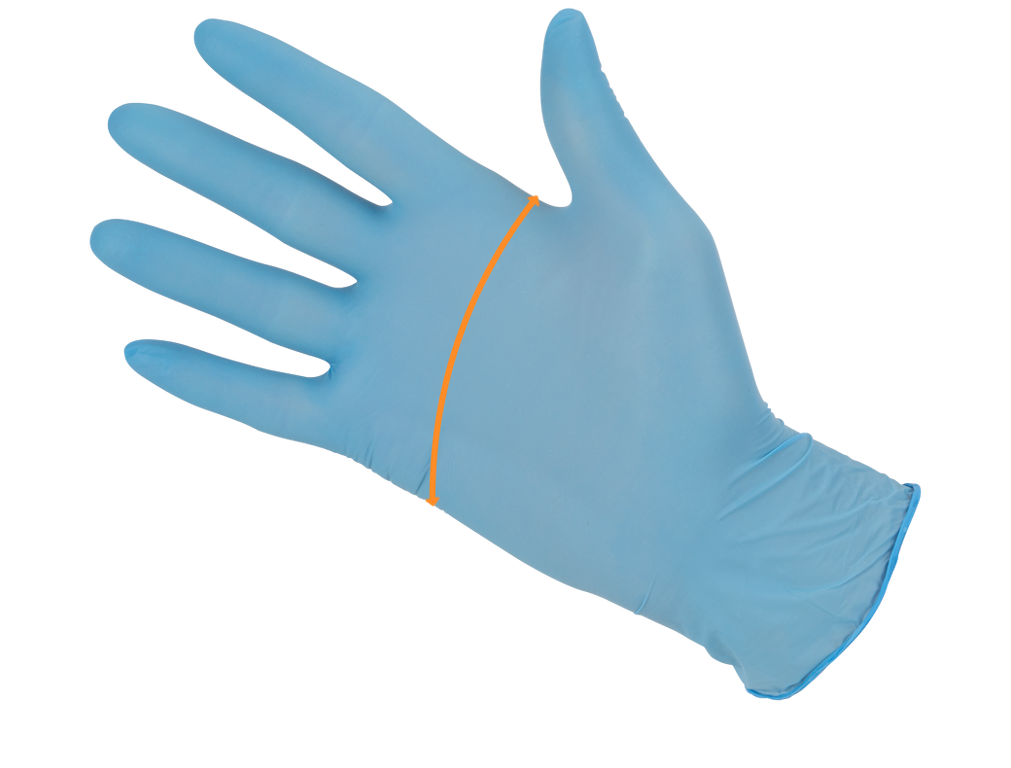
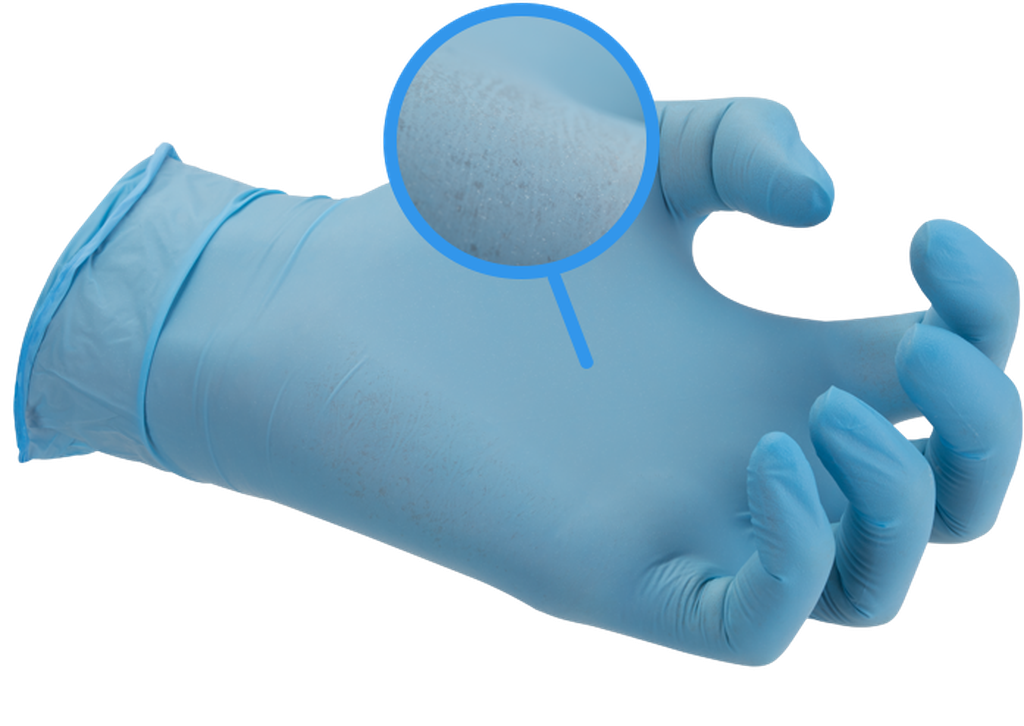
Material characteristics:
NITRILE
Nitrile, also known as acrylonitrile butadiene rubber (NBR), is a material composed of organic chemical compounds. The production process of this raw material was modified so that it can compete with natural rubber. Nitrile gloves are an ideal alternative to gloves made of natural rubber. Nitrile gloves:
• do not contain latex proteins – safe for persons sensitive to latex
• their content of chemical vulcanisation accelerators is limited to a minimum
• have good barrier properties for chemicals
Minimised content of chemical accelerators significantly reduces the risk of type IV allergy.



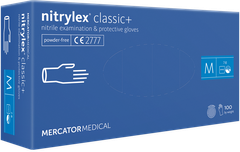

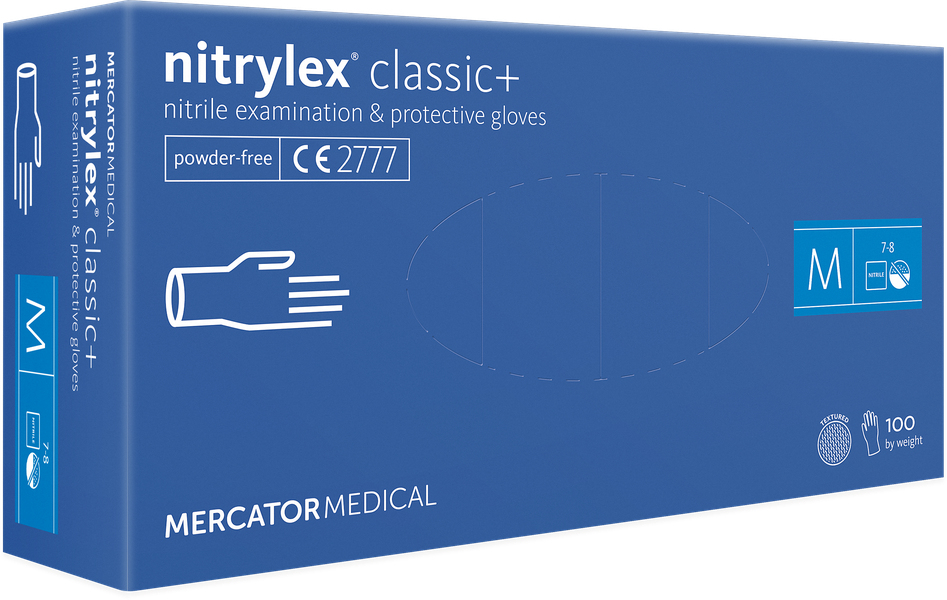
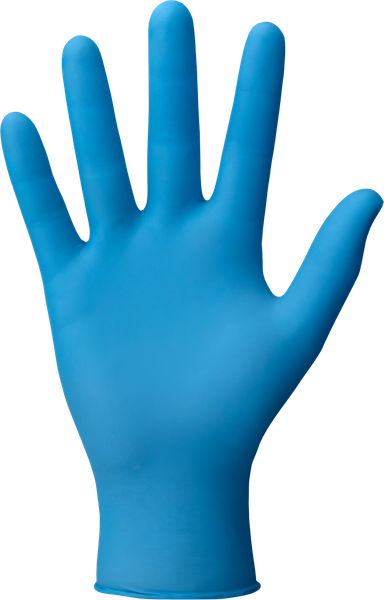
 semi-premium
semi-premium
 Go to the store
Go to the store
